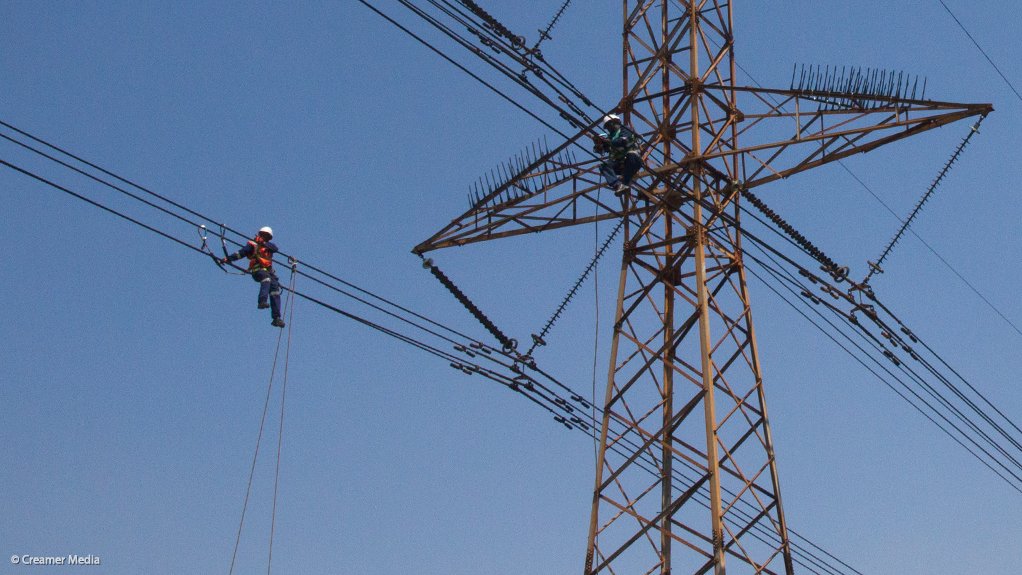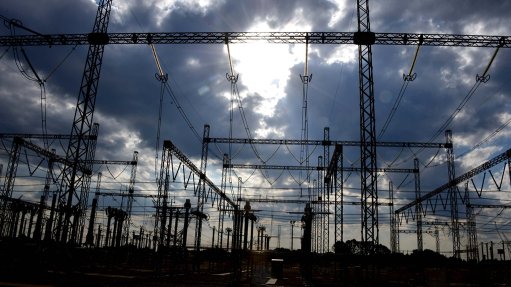NTCSA still mulling private participation in grid roll-out but confirms deployment ‘step change’ needed
The National Transmission Company South Africa (NTCSA) has told lawmakers that a “step change” will be needed in the delivery of new grid infrastructure if 14 500 km of new powerlines and 133 000 MVA of additional transformers are to be added to the grid by 2034.
However, government and NTCSA were still investigating possible private-sector participation as a “potential alternative delivery mechanism”. This, in addition to its traditional engineer, procure and construction management approach, as well as through the more recently adopted engineer, procurement and construction (EPC) contracting model.
Some additional “self-build” by independent power producers seeking to connect their generators to the grid has also become a feature in recent years, but South Africa has not yet fully embraced independent transmission projects (ITPs), based on build-own-operate-transfer or build-operate-transfer models.
While the National Treasury and Electricity and Energy Minister Dr Kgosientsho Ramokgopa are keen to facilitate the procurement of ITPs from 2025 onwards, the NTCSA is reticent, having indicated that it does not want such projects to reflect as a liability on its balance sheet.
It has, however, referred recently to a build-and-transfer model, which it describes as “EPC with finance”.
In a briefing to the Portfolio Committee on Electricity and Energy, interim CEO Segomoco Scheppers focused primarily on the NTCSA’s own corporate plan, which involves R112-billion of capital expenditure by the NTCSA during the first five-year period of the Transmission Development Plan (TDP) to 2029.
The TDP itself has been divided into two phases, with the first phase to 2029, far less ambitious in scale than is the case for the period after 2030.
During the first phase, 5 043 km of powerlines and 41 325 MVA of transformers are planned, as compared with 9 450 km and 91 325 MVA of transformer between 2030 and 2034.
The ramp-up under the first phase is also relatively modest, with only 286 km planned for the current financial year, alongside 2 380 MVA, rising to 2 122 km in 2029 and 18 735 MVA.
Scheppers said delivery will be dependent on the outcome of Eskom’s revenue application that is currently before the regulator, as well as the “mobilisation of capital, contractors, suppliers and skilled workers and professionals”.
He also highlighted five key delivery challenges, including:
- the acquisition of land and servitude rights in a context where some landowners are resistant to cooperate;
- servitude encroachment mainly from informal settlements that is preventing project teams from accessing transmission lines;
- a lack of line construction capacity, which is being addressed through contractor incubation and the creation of EPC powerline contractor panels;
- insufficient manufacturing capacity for large transformers, which has led NTCSA to pre-qualify 22 international factories; and
- limited fabrication capacity and competition for the structural steel needed for powerline towers.
Scheppers told lawmakers that various actions were being taken to address these challenges to delivering on the TDP, alongside initiatives to alleviate grid constraints in the short term.
He also said that the NTCSA was working on interventions and projects to ensure system security and stability as the penetration of variable renewable energy generation increased, including through the introduction of synchronous condensers at strategic locations on the grid.
Article Enquiry
Email Article
Save Article
Feedback
To advertise email advertising@creamermedia.co.za or click here
Press Office
Announcements
What's On
Subscribe to improve your user experience...
Option 1 (equivalent of R125 a month):
Receive a weekly copy of Creamer Media's Engineering News & Mining Weekly magazine
(print copy for those in South Africa and e-magazine for those outside of South Africa)
Receive daily email newsletters
Access to full search results
Access archive of magazine back copies
Access to Projects in Progress
Access to ONE Research Report of your choice in PDF format
Option 2 (equivalent of R375 a month):
All benefits from Option 1
PLUS
Access to Creamer Media's Research Channel Africa for ALL Research Reports, in PDF format, on various industrial and mining sectors
including Electricity; Water; Energy Transition; Hydrogen; Roads, Rail and Ports; Coal; Gold; Platinum; Battery Metals; etc.
Already a subscriber?
Forgotten your password?
Receive weekly copy of Creamer Media's Engineering News & Mining Weekly magazine (print copy for those in South Africa and e-magazine for those outside of South Africa)
➕
Recieve daily email newsletters
➕
Access to full search results
➕
Access archive of magazine back copies
➕
Access to Projects in Progress
➕
Access to ONE Research Report of your choice in PDF format
RESEARCH CHANNEL AFRICA
R4500 (equivalent of R375 a month)
SUBSCRIBEAll benefits from Option 1
➕
Access to Creamer Media's Research Channel Africa for ALL Research Reports on various industrial and mining sectors, in PDF format, including on:
Electricity
➕
Water
➕
Energy Transition
➕
Hydrogen
➕
Roads, Rail and Ports
➕
Coal
➕
Gold
➕
Platinum
➕
Battery Metals
➕
etc.
Receive all benefits from Option 1 or Option 2 delivered to numerous people at your company
➕
Multiple User names and Passwords for simultaneous log-ins
➕
Intranet integration access to all in your organisation



















